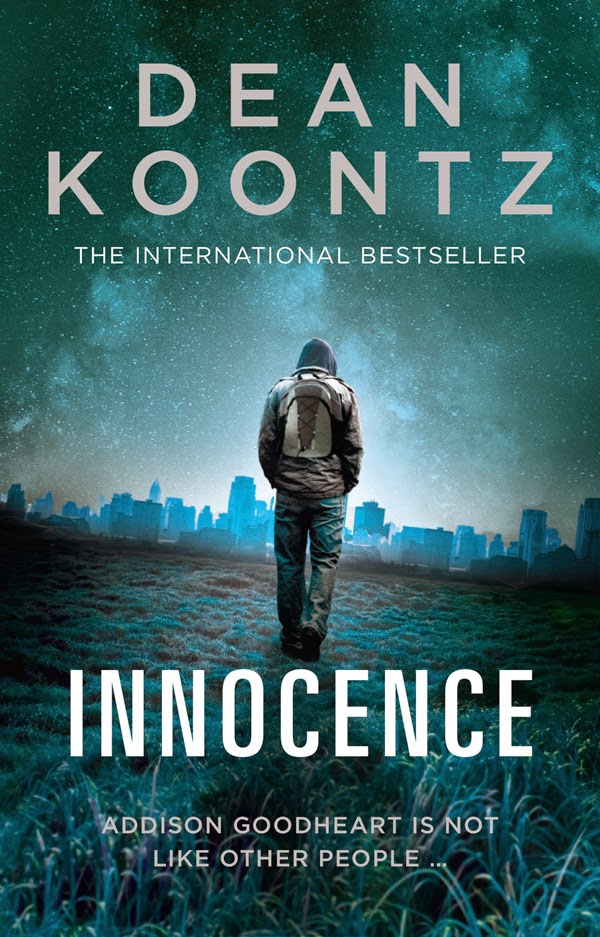 Addison Goodheart lives below the city, out of sight of people whose first impulse if they see his face is to try to commit violence.
Addison Goodheart lives below the city, out of sight of people whose first impulse if they see his face is to try to commit violence.
Addison reads, and lives quietly, and goes up into the city at night, when the world is quiet.
He’s in the library one night – reading being a pleasure he feels safe in indulging – when his world is changed forever.
Gwyneth is a girl who also hides her appearance from the world, but in a different way. The night that Addison saves Gwyneth from someone who wants to hurt her is the night that not only their lives, but the whole world, is irrevocably changed.
Dean Koontz is good at digging down into the dark heart of the human experience, and he uses that to decent effect in Innocence.
Much is made of people’s inability to process Addison’s appearance, but the reason for it isn’t explained until very late in the story, and Koontz threads it through the mystery of Gwyneth and the man who is pursuing her with the deft touch of a man who knows how to tell a good story.
On the surface, it looks like girl meets boy, boy saves girl, but Innocence is much more than that.
Parts of it feel a little bit saggy, and the description of the snow, and the cold is a bit overdone, but Innocence still cracks along at a reasonable pace. The evildoers are unambiguously evil, and Addison and Gywneth are unambiguously good, and sometimes it’s refreshing to read a simple good vs evil morality tale.
